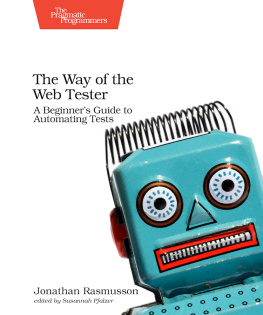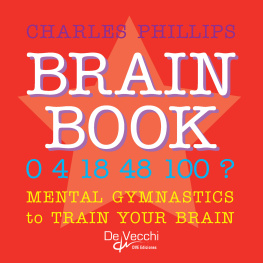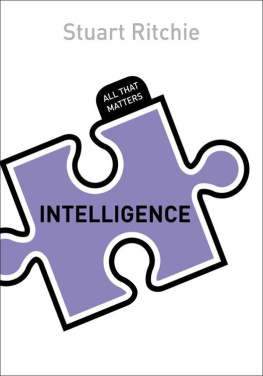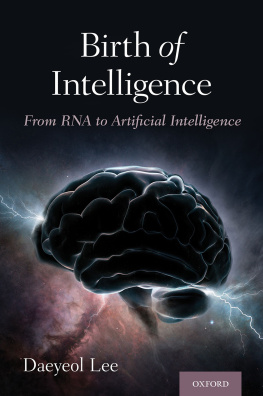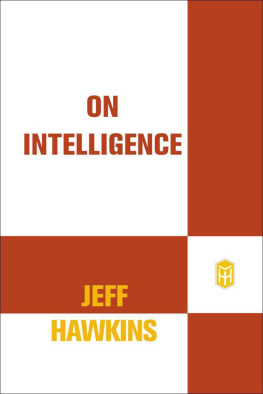


Thunder Bay Press
An imprint of Printers Row Publishing Group
10350 Barnes Canyon Road, Suite 100, San Diego, CA 92121
www.thunderbaybooks.com
Copyright 2010 Bibelot Limited
This edition copyright 2011 BOOKINABOX
All rights reserved. No part of this publication may be reproduced, distributed, or transmitted in any form or by any means, including photocopying, recording, or other electronic or mechanical methods, without the prior written permission of the publisher, except in the case of brief quotations embodied in critical reviews and certain other noncommercial uses permitted by copyright law.
Printers Row Publishing Group is a division of Readerlink Distribution Services, LLC.
Thunder Bay Press is a registered trademark of Readerlink Distribution Services, LLC.
All notations of errors or omissions should be addressed to Thunder Bay Press, Editorial Department, at the above address. All other correspondence (author inquiries, permissions) concerning the content of this book should be addressed to BOOKINABOX, St Chads House, 148 Kings Cross Road, London WC1X 9DH,
Author: Charles Phillips
Publisher: Peter Norton
Associate Publisher: Ana Parker
Publishing/Editorial Team: April Farr, Kelly Larsen, Kathryn Chipinka, Aaron Guzman
Editorial Team: JoAnn Padgett, Melinda Allman
eISBN-13: 978-1-62686-076-6
CONTENTS




What is intelligence? Is it something you simply have or dont have? Can you make yourself more intelligent?
For many years the accepted view was that intelligence is inborn, a hand of cards dealt by fate. You have what youre given, and theres very little you can do to change it.
But many experts now tell us that this is mistaken. Advances in our understanding of the brain indicate that you can train yourself to think more effectively and raise your performance on traditional measures of natural intelligence such as IQ tests.
Tests of intelligence Youve probably seen, heard of, or taken an IQ test. These tests claim to be designed in such a way that they measure pure intelligence and give you a score that represents your intelligence quotientyour level of intelligence as an average compared to members of the general population.
They have frequently been the focus of controversy. Opponents claim that they fail fully to take into account the effects of cultural and historical differences. As a result, people with particular types ofusually eliteeducation do well in the test and appear to be more intelligent.
In IQ Tester we provide our own specially created version of an IQ test, devised in line with the latest thinking on the human brain and intelligence. This test is not endorsed by any official body. Its intended to be good fun, part of the set of tools provided in this box to develop your thinking skills and your capacity to succeed in IQ tests.
Boost your brainpower Do you think of yourself as intelligent? Would you like to be cleverer? Perhaps youre a high achiever and full of confidence, or maybe youve had setbacks in education or work that make you doubt your intellectual ability. Wherever youre at, you have the resources to change.
Your brain has a vast natural capacity and enormous potential for development. You have 100 billion neurons (a type of brain cell), and each time you learn something, each time you have a new experience, the neurons make fresh connections among themselves. The potential number of connections your neurons can make is 100 trillionmore than the number of atoms in the universewhich should give you an idea of your brains capacity to improve and to grow your intelligence.
Moreover, each and every second your brain makes one million new connections. So, yes, you can changestarting right now. You can develop your thinking styles. You can improve your performance in the types of challengearithmetic or verbal dexterity, saythat you find difficult.
You can boost your scores in intelligence challenges of the kind used in job evaluations and IQ tests. You can improve your performance, allowing you to act more intelligently at work and in social situations.
So lets get started!
How to make the most of the material Accompanying this handbook in the IQ Tester box are two tests and an intriguing wooden puzzle. The materials are designed for use in the following sequence:
to learn how to score yourself.
Next read the remainder of this handbook, in which we examine the history of IQ tests and take a closer look at the pros and cons of intelligence testing, examine the latest fascinating theories of what intelligence is, and put forward a set of key strategies for training your brain and developing your intelligence.
After reading the book, put some of this advice into practice and warm up your thinking with the limber-up exercises on .
Finally, take IQ test B, and score your performance as before from the answer card and using the scoring system information on . If youve picked up some of the many tips on thinking strategies included throughout the book, you may find that you score higher than you did in the first test.
.
You can also use the puzzle, handbook, and intelligence tests to quiz friends and family.
YOUR THOUGHTS COUNT
Experienceand your thinkingleaves a mark upon the brain. Because you have your own unique thoughts and experience of the world, you build a unique network of connections between your neurons. The lesson from this for our purposes is: If you change your thinking, you change the pattern; make sure you exercise and engage your brain, and you will hone your intelligence and sharpen your thoughts. This is a combination of modern brain science and ancient wisdom. Gautama Siddhartha, the ancient spiritual teacher known as the Buddha, had it right when he taught in the 6th century BCE, our living is shaped by our mind; we become what our thinking makes us.

Where do IQ tests come from?
In this section we examine the origins of intelligence testing and take a closer look at the pros and cons of awarding IQ scores.
In the beginning
The French psychologist Alfred Binet devised the first intelligence tests in 1905. He was not looking for the super-intelligentrather, his goal was to identify children who were less clever than average, those who needed special educational assistance, so that he could help fit them into the right level within the French educational system.
Next page


